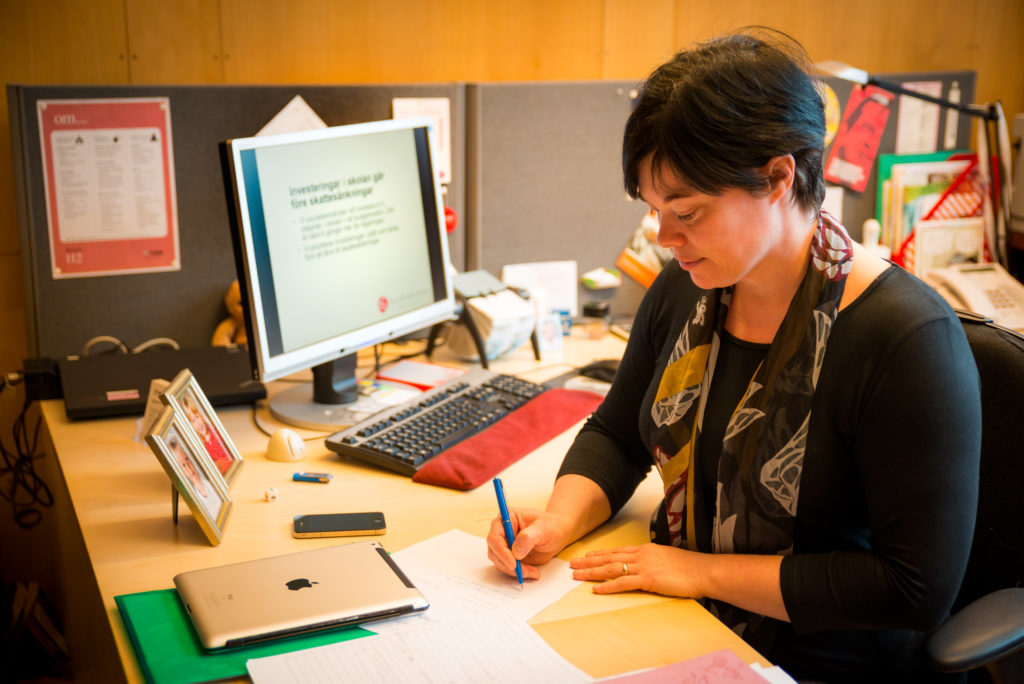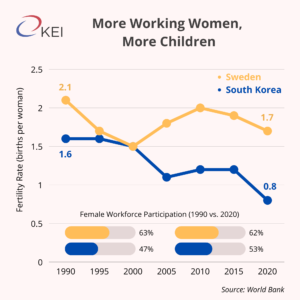The Peninsula
Reversing Low Fertility With Work

Billionaire Elon Musk recently drew attention to the falling number of births in South Korea, using it as a warning to other advanced economies. The country’s fertility rate in 2020 was 0.84 and the total population had begun to decline that year. However, the underlying problem is not, as Musk implies, people’s failure to “celebrate having kids” but the low rates of female labor force participation.
This may appear counterintuitive given the standard view that improved family planning, along with the subsequent increase in women’s ability to seek professional advancement, reduces and delays childbirths. However, examination of female labor force participation and fertility rates in Scandinavian countries since 1985 shows that increases in the number of working women lead to families choosing to have more children, not less. Researchers explain that the initial choice between having children and working is offset by greater household incomes that afford families more options. Examinations of other advanced economies also show that reduced female earnings are correlated with women postponing births, which corresponds with our understanding that fertility rates fall during periods of economic difficulties.

Given these studies, the policy task ahead for South Korea is to lift its female labor participation rate, which stands slightly over 50%. In addition, policymakers must be mindful that Korean women currently tend to disproportionately work in low-wage, non-contract positions. Measures to increase female labor participation in places where women can grow their earnings potential may be a good way to help reverse the population decline. This is a space that the United States also needs to pay particular attention given its own parallel decline in fertility rate and female labor force participation.
This briefing comes from Korea View, a weekly newsletter published by the Korea Economic Institute. Korea View aims to cover developments that reveal trends on the Korean Peninsula but receive little attention in the United States. If you would like to sign up, please find the online form here.
Korea View was edited by Yong Kwon with the help of Sarah Marshall and Mai Anna Pressley. Picture from the flickr account of Socialdemokraterna Uppsala
